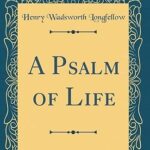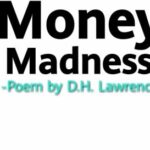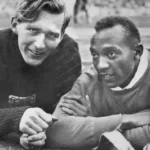Television
“Television” is a short story written by Roald Dahl. Roald Dahl is a renowned British author known for his imaginative and often darkly humorous stories for both children and adults. He is best known for his children’s books such as “Charlie and the Chocolate Factory,” “Matilda,” and “James and the Giant Peach.” Dahl’s writing style is characterized by its wit, clever wordplay, and the ability to captivate readers with fantastical and quirky tales.
Summary of “Television”:
“Television” is a humorous short story that explores the consequences of a family’s obsession with television. The story revolves around the Perkins family, consisting of Mr. Perkins, Mrs. Perkins, and their son Mike. The family is completely engrossed in watching television, spending most of their waking hours in front of the TV set.
One day, a mysterious television repairman arrives at their door. He is a peculiar character with a distinct air of authority. He informs the Perkins family that their television set has a unique feature: it can transmit events happening in the future. Skeptical but intrigued, the family decides to test the television’s capabilities.
As they watch the television, they witness Mike winning a horse race. Excited by this revelation, Mr. Perkins immediately places a bet on the horse Mike is riding. However, when they tune in to the race on television, they are dismayed to see Mike losing badly. Mr. Perkins loses his money, and they realize that the television’s predictions were unreliable.
The repairman reveals that the television set doesn’t show the future but rather the opposite of what it shows. If it predicts a sunny day, it will rain, and vice versa. The family is left disheartened and decides to get rid of the television. They return to a more balanced and fulfilling life, free from the grip of the television set.
“Television” serves as a satirical commentary on the way television can consume people’s lives and distort their sense of reality. Dahl uses humor and irony to highlight the absurdity of excessive television consumption and the allure of fantastical claims. Ultimately, the story suggests that real life, with all its unpredictability, is more rewarding than the false promises of television.
Question and Answer
1. What is the poet’s opinion of television, especially regarding children’s exposure to it?
Answer: The poet despises television, particularly when it comes to children. He believes that television is a worthless and idiotic medium that should not be a part of children’s lives. He is deeply concerned about how children waste their time in front of the TV and wishes to protect their young minds from its negative influence.
2. How does the poet describe the content that children watch on television?
Answer: The poet describes the content on television as fanciful and alluring to children. He suggests that these shows capture children’s interests and curiosity, leading them to spend their time watching television continuously.
3. How does the poet characterize children’s behavior while watching TV?
Answer: The poet describes children as being completely absorbed in watching television. They become annoyed if anything disrupts their viewing experience, and their behavior seems controlled by the television, almost as if they are possessed by it.
4. Why does the poet view television as a harmful addiction for children?
Answer: The poet believes that any habit formed during childhood can have lasting effects on a person’s development. He views television as a detrimental addiction because it lures children away from important life skills and productive activities. He fears that by sacrificing their development for the sake of television, children are setting themselves up for a difficult future.
5. What is the poet’s perspective on why parents allow their children to watch TV?
Answer: The poet suggests that parents often resort to allowing their children to watch TV because it provides a temporary reprieve from the challenges of managing restless and energetic children. It is a convenient way for parents to keep their children occupied.
6. In what way does the poet consider television to be a babysitter?
Answer: The poet sees television as a form of babysitting because it provides children with an easy and pleasurable distraction, effectively keeping them quiet and occupied. Parents may use it as a way to momentarily manage their children’s restlessness.
7. What undesirable consequences of watching television does the poet highlight?
Answer: The poet emphasizes that watching television can hinder mental and intellectual development. It strips individuals of their imaginative abilities and often exposes them to unproductive and useless information. The poet suggests that watching too much TV disconnects people from the joy of reading and imagination.
8. Why does the poet use all capital letters at the end of the poem?
Answer: The poet uses all capital letters to draw attention to the concluding section of his poem, emphasizing the seriousness of his message. He wants to ensure that readers do not overlook the grave consequences he associates with watching television.
9. How does the poet compare the brains of TV-addicted children to cheese?
Answer: The poet compares the brains of TV-addicted children to cheese to illustrate how their brains may become full of holes, just like cheese. This metaphor implies that excessive TV consumption may erode a child’s mental development, leaving them with a mind that lacks depth and substance.
10. Who does the pronoun ‘HE’ refer to in the line “HE CANNOT THINK — HE ONLY SEES!”?
Answer: The pronoun ‘HE’ in this line refers to anyone who is obsessed with television. The poet is emphasizing that excessive TV consumption can hinder a person’s ability to think critically and independently, reducing them to passive observers.
Additional Question and Answer
1. What is the poet’s overall message or warning regarding television in this poem?
Answer: The poet’s overall message is a strong warning about the negative effects of television, especially on children. He urges readers to be cautious about the mindless consumption of television content and its potential to harm intellectual and imaginative growth.
2. How does the poet feel about the impact of television on children’s minds?
Answer: The poet feels deeply concerned and critical of the impact television has on children’s minds. He believes that it hinders their mental development and creativity.
3. What does the poet mean by “THE MORONIC THING TO DO” in the poem?
Answer: The poet is using strong language to convey that mindlessly watching television is foolish and senseless.
4. How does the poet view the addictive nature of television?
Answer: The poet sees television as highly addictive, particularly for children. He believes that this addiction can be harmful and detrimental to their overall development.
5. What is the poet’s view on the content shown on television?
Answer: The poet suggests that television content is often fanciful and alluring to children. However, he believes that it lacks substance and can be detrimental to their intellectual growth.
6. What is the significance of the line “HE CANNOT THINK — HE ONLY SEES!”?
Answer: This line emphasizes the poet’s belief that excessive television consumption can hinder a person’s ability to think critically and independently. They become passive observers rather than active thinkers.
7. How does the poet feel about parents who use television as a babysitter?
Answer: The poet doesn’t explicitly mention his feelings about parents who use television as a babysitter, but he implies that it is a convenient but potentially harmful choice for managing restless children.
8. Why does the poet use the term “Idiot’s Box” to describe television?
Answer: The poet uses the term “Idiot’s Box” to emphasize his negative view of television, suggesting that it is a foolish and unwise medium.
9. What does the poet think should be done with television?
Answer: The poet implies that television should be avoided or used sparingly, especially by children. He believes that it can have detrimental effects on one’s mind and intellectual growth.
10. What alternatives does the poet suggest for children instead of watching television?
Answer: The poet doesn’t explicitly suggest alternatives, but he encourages children to engage in activities that promote intellectual growth, imagination, and creativity instead of passively watching TV.
11. How does the poet use humor and sarcasm in the poem to make his point?
Answer: The poet employs humor and sarcasm to criticize the mindless consumption of television. For example, he uses phrases like “THE MORONIC THING TO DO” to highlight the absurdity of excessive TV watching.
12. What is the significance of the phrase “A WEIRD BAZAAR” in the poem?
Answer: The phrase “A WEIRD BAZAAR” is used to describe the content shown on television. It suggests that the content is strange, exotic, and enticing, but ultimately lacks substance.
13. How does the poet feel about the impact of television on creativity and imagination?
Answer: The poet feels that television can stifle creativity and imagination. He believes that children should engage in activities that encourage these qualities instead.
14. What message does the poet want parents to take away from this poem?
Answer: The poet wants parents to be aware of the potential harm that excessive television consumption can have on their children’s intellectual development. He urges them to consider alternatives that promote healthy growth.
15. How does the poet view television’s influence on children’s behavior?
Answer: The poet suggests that television can have a negative influence on children’s behavior, making them lazy and irritable when their viewing experience is disrupted.
16. How does the poet use repetition in the poem to emphasize his message?
Answer: The poet repeats the phrase “he only sees” to emphasize the idea that excessive television consumption can lead to passive observation without critical thinking.
17. What is the tone of the poem, and how does it contribute to the poet’s message?
Answer: The tone of the poem is critical and cautionary. It contributes to the poet’s message by emphasizing the potential negative consequences of television consumption.
18. What role does humor play in the poem’s overall message?
Answer: Humor is used to highlight the absurdity of excessive television consumption, making the poet’s message more engaging and memorable.
19. How does the poet feel about the addictive nature of television content?
Answer: The poet feels that the addictive nature of television content, especially for children, is concerning and potentially harmful.
20. What is the poet’s perspective on the cultural impact of television?
Answer: The poet suggests that television can have a detrimental cultural impact, potentially leading to a society where people become passive consumers of entertainment rather than active thinkers and creators.





